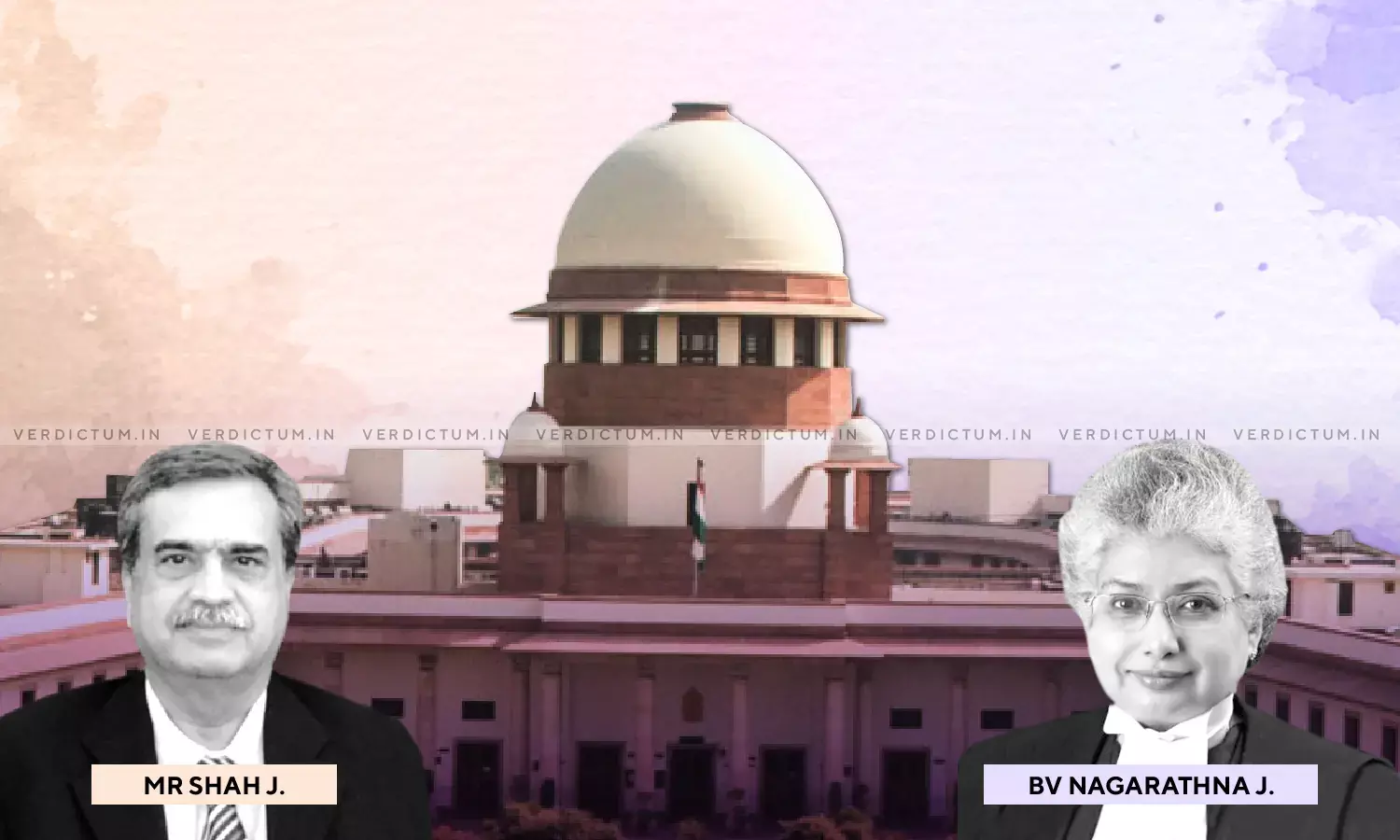Advisable That High Courts Deliver Judgment At Earliest After Arguments Are Concluded - Supreme Court
Advisable That High Courts Deliver Judgment At Earliest After Arguments Are Concluded - Supreme Court

The Supreme Court while considering a criminal appeal filed under Section 482 CrPC noted that the High Court had delivered the impugned judgment and order after a period of 6 months after the matter was reserved for judgment and held, "Though the judgment and order passed by the High Court may not be set aside on the aforesaid ground only, however it is always advisable that the High Court delivers the judgment at the earliest after the arguments are concluded and the judgment is reserved."
The Court in this context placed reliance on Bhagwandas Fatechand Daswani and Ors. vs. HPA International and Ors., (2000) 2 SCC 13 where it was held that a long delay in delivery of the judgment gives rise to unnecessary speculations in the minds of the parties in a case.
A two-judge Bench of Justice MR Shah and Justice BV Nagarathna set aside a judgment passed by the Allahabad High Court by opining that "no mini trial can be conducted by the High Court in exercise of powers under Section 482 Cr.P.C. jurisdiction and at the stage of deciding the application under Section 482 Cr.P.C., the High Court cannot get into appreciation of evidence of the particular case being considered."
ASG Aishwarya Bhati appeared on behalf of the State of UP. Senior Advocate Dr Abhishek Manu Singhvi appeared on behalf of the original informant. Senior Advocate Shri Ranjeet Kumar and Senior Advocate Shri Sidharth Dave appeared on behalf of the original accused.
In this case, Respondent No. 4 directed its transporter to arrange a vehicle and deliver goods to the informant. The trucks were enabled with GPS systems as maintained by the Excise Department Track and Trace policy. The consignment was dispatched through two trucks. 2 days later, the GPS devices of both trucks lost contact with the GPS tracking agency. The tracer could not be contacted nor could the vehicles be traced.
As the goods were missing after full payment was made, FIRs were lodged.
The High Court exercised powers under Section 482 CrPC to quash the entire criminal proceedings.
The State and the informant approached the Supreme Court.
The Supreme Court opined that "Having gone through the impugned judgment and order passed by the High Court by which the High Court has set aside the criminal proceedings in exercise of powers under Section 482 Cr.P.C., it appears that the High Court has virtually conducted a mini trial, which as such is not permissible at this stage and while deciding the application under Section 482 Cr.P.C. As observed and held by this Court in a catena of decisions no mini trial can be conducted by the High Court in exercise of powers under Section 482 Cr.P.C. jurisdiction and at the stage of deciding the application under Section 482 Cr.P.C., the High Court cannot get into appreciation of evidence of the particular case being considered."
To that end, the Bench opined that the High Court had exceeded its jurisdiction, and therefore, allowed the appeals.
Click here to read/download the Judgment

